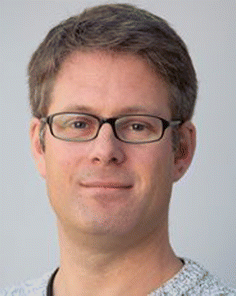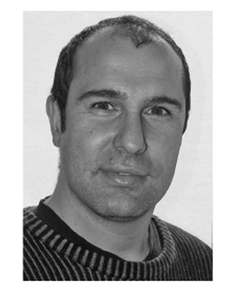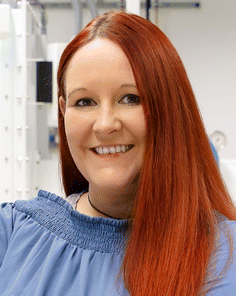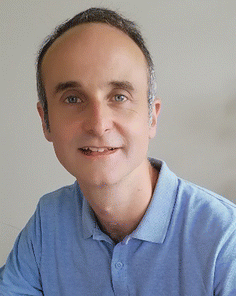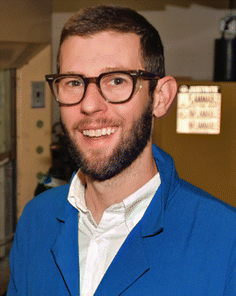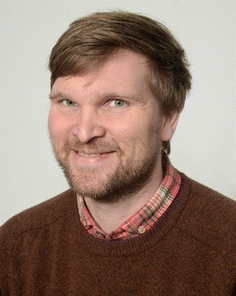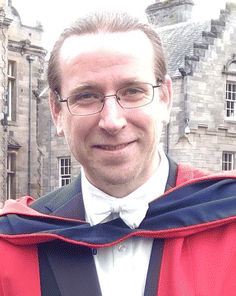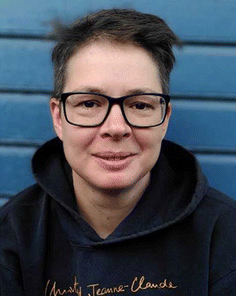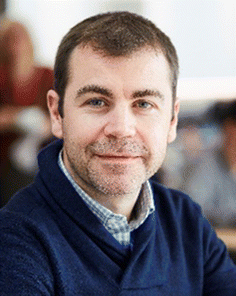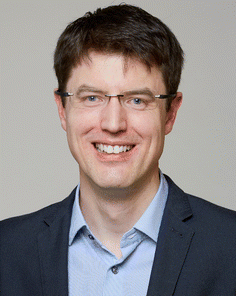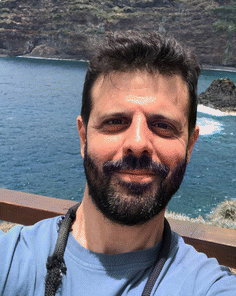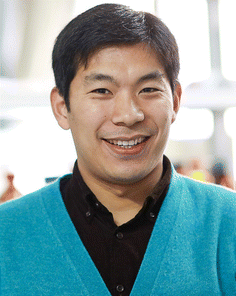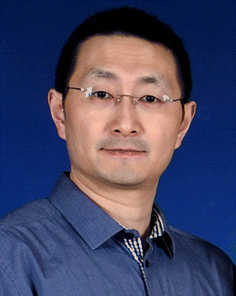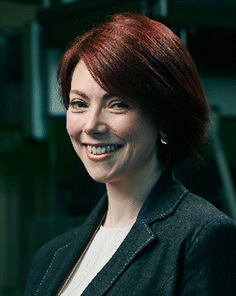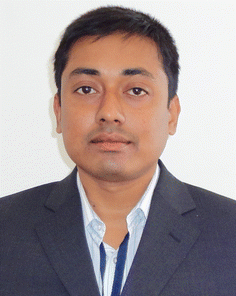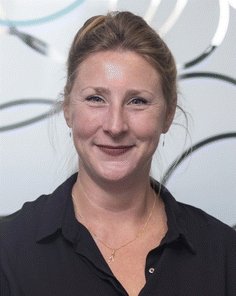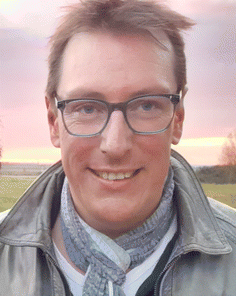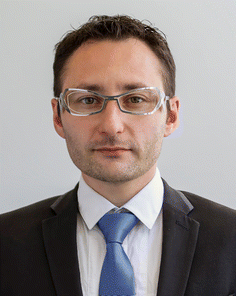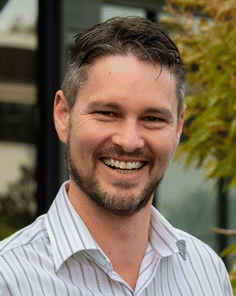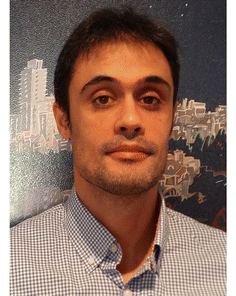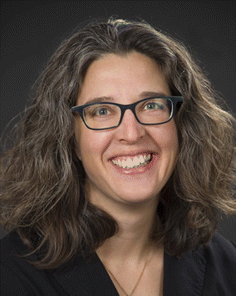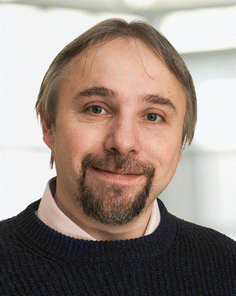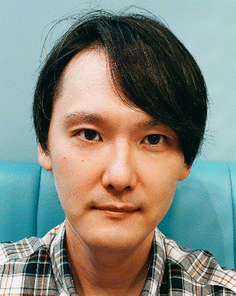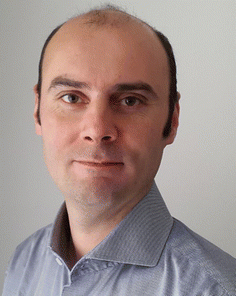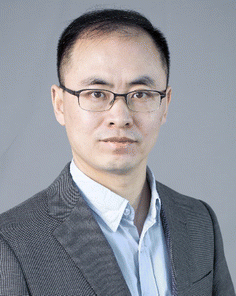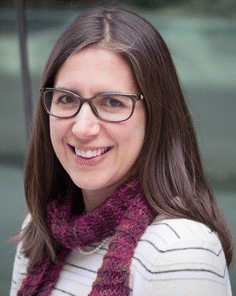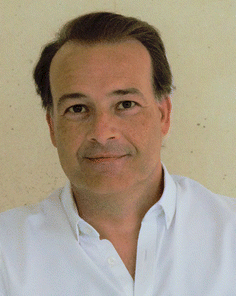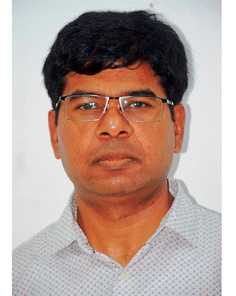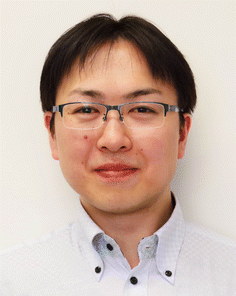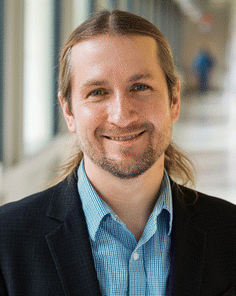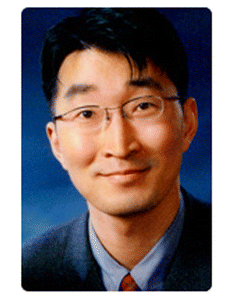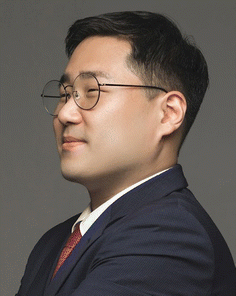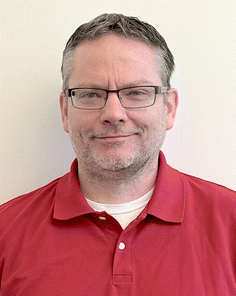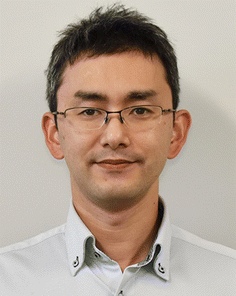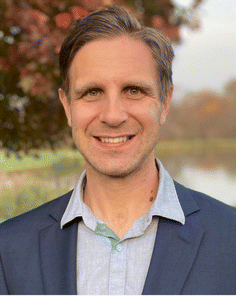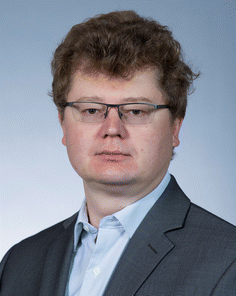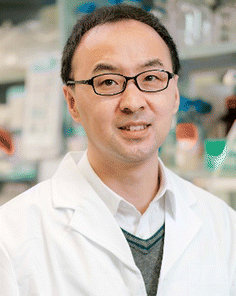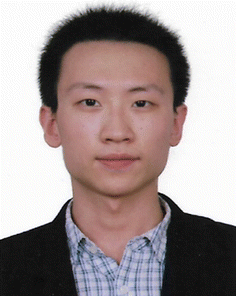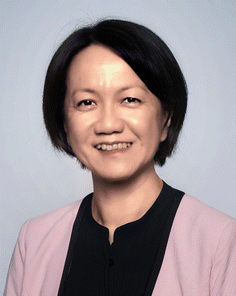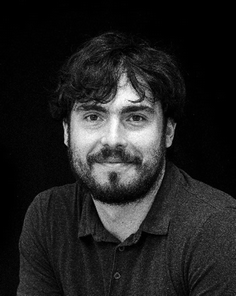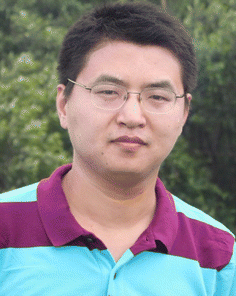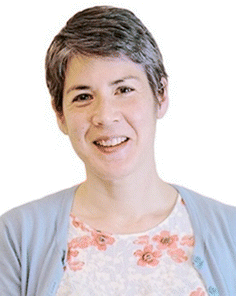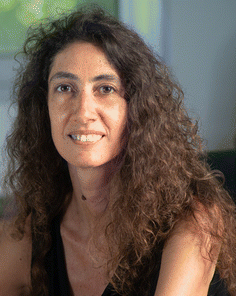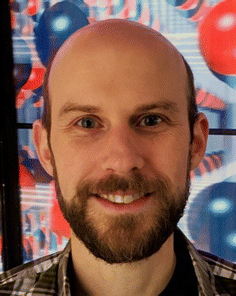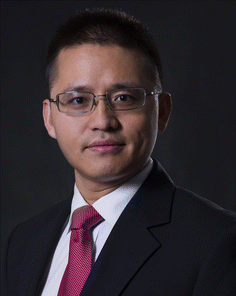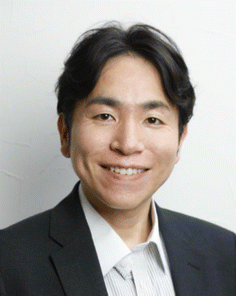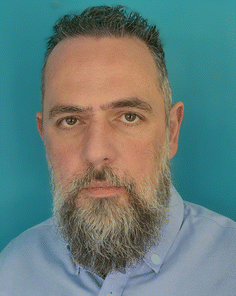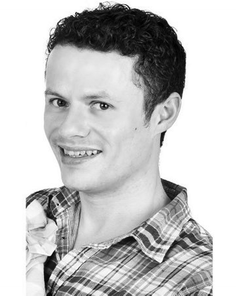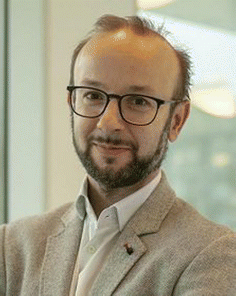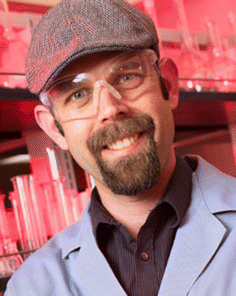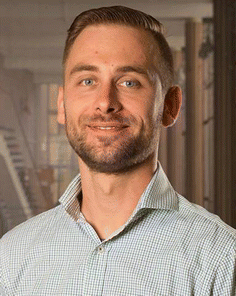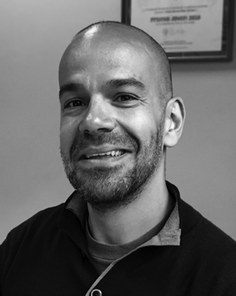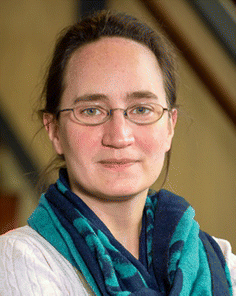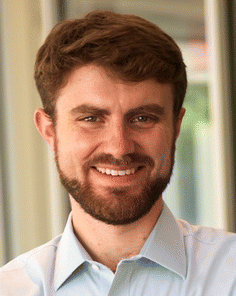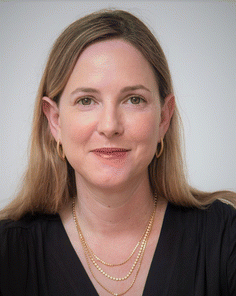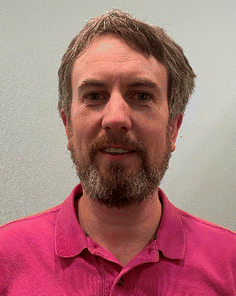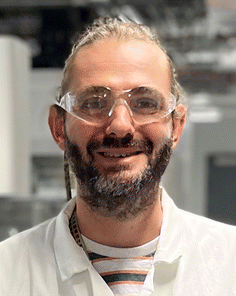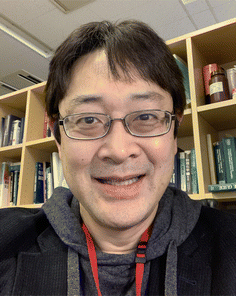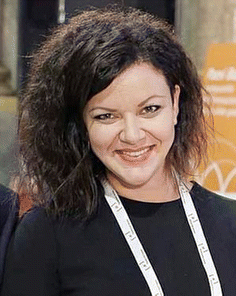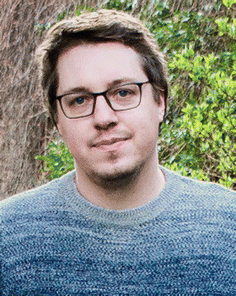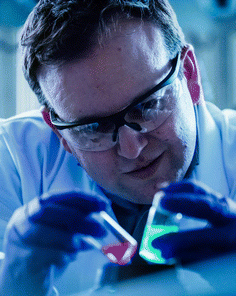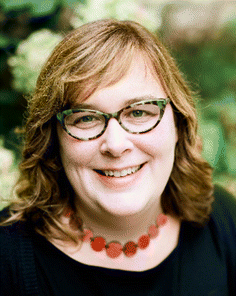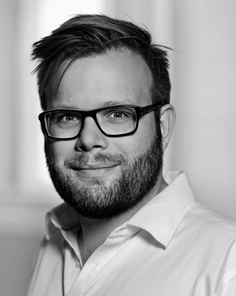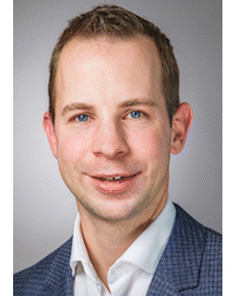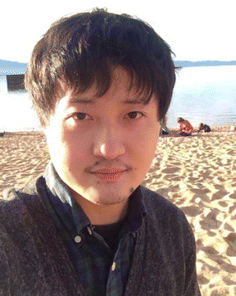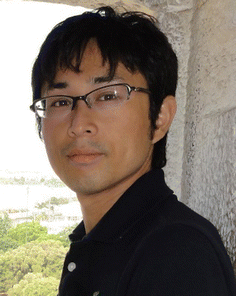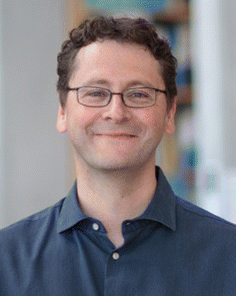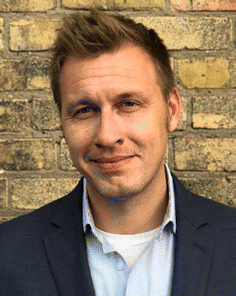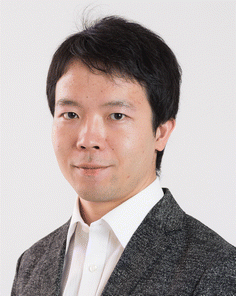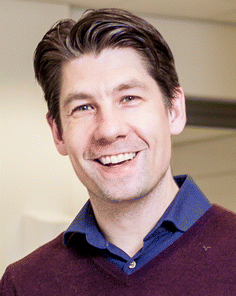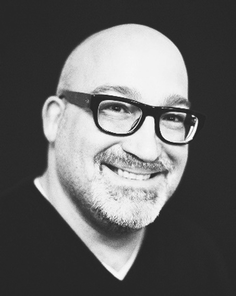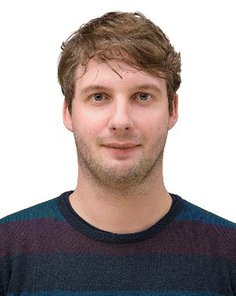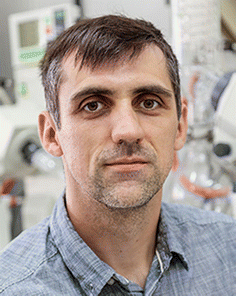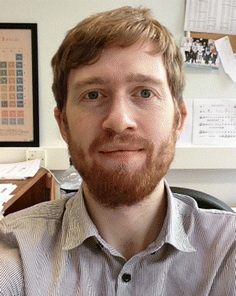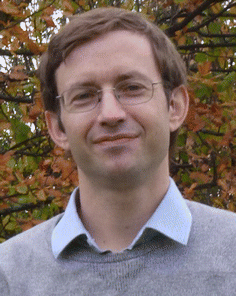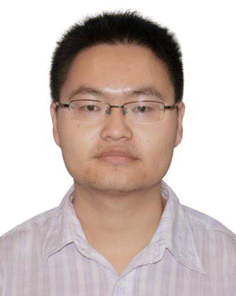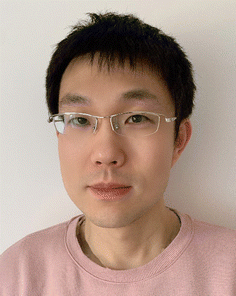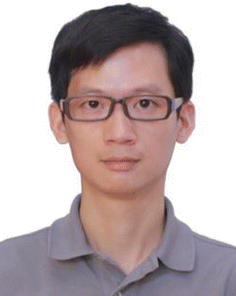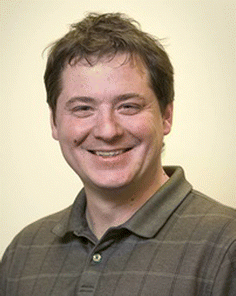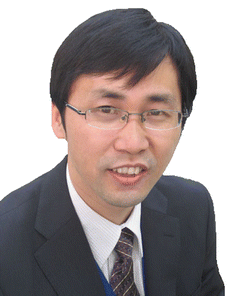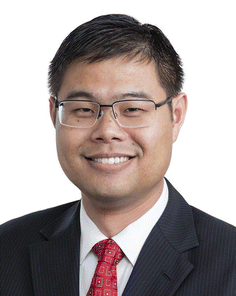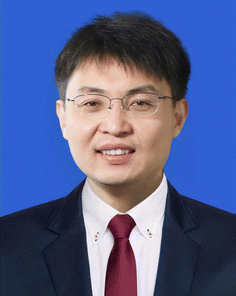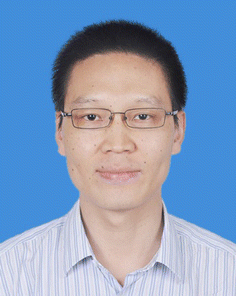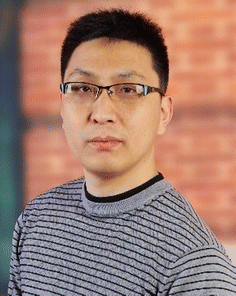DOI:
10.1039/D3CC90023A
(Profile)
Chem. Commun., 2023,
59, 1869-1888
Contributors to the Pioneering Investigators collection 2022
Tim Albrecht is Professor of Physical Chemistry in the School of Chemistry at the University of Birmingham and currently UoB Turing Fellow. His research interests are in electrochemical surface science, single-molecule charge transport and thermoelectrics as well as single-molecule biosensing using resistive pulse sensors. Experiments in these areas produce significant amounts of “noisy” data where event characteristics and system properties are not always a priori known. Hence, he is interested in advanced data analysis and AI-based approaches, for example employing deep learning and image recognition, which provide new insight into the underlying, sometimes quite complex physico-chemical behaviour of such systems.
José Alemán obtained his PhD in 2005 at Universidad Autónoma de Madrid (UAM). Then, he carried out his postdoctoral studies (2006–2008) with Prof. Jørgensen. He returned in 2009 as a Ramón y Cajal Researcher and is currently Professor at UAM. He has obtained more than 15 projects in competitive calls. Since 2019, he has been the scientific director of the Institute of Advanced Chemistry – UAM and has received different prizes such as the Lilly PhD Research Award 2005, Best PhD thesis – UAM 2006, Sigma-Aldrich prize 2013, Lilly Youth Researcher Prize 2015 and José Barluenga Medal 2022. His research interests include asymmetric synthesis, materials and catalysis.
Claudia Backes is a chemist by training and received her PhD in 2011 from the University of Erlangen, Germany. After some time in science administration, Claudia received a postdoc grant from the German Research Foundation (DFG) in 2012 and moved to Jonathan Coleman's group at Trinity College Dublin, Ireland. In 2015, she returned to Germany and started her independent research in Applied Physical Chemistry at Heidelberg funded through the prestigious Emmy Noether programme from the DFG. In 2021, she was appointed Chair Professor of Physical Chemistry of Nanomaterials at Kassel. Claudia's research interests are in liquid exfoliation, purification, characterisation and chemical modification of nanosheets.
Sarbajit Banerjee is the Davidson Chair Professor of Chemistry, Professor of Materials Science and Engineering, and Chancellor EDGES Fellow at Texas A&M University. His research interests are focused on electron correlated solids, electronic structure studies at interfaces, metastable materials, energy conversion and storage, energy efficient computation, and the development of synchrotron spectroscopy and imaging methods. Recent distinctions include the Edith and Peter O’Donnell Award in Science and the American Chemical Society Stanley C. Israel Regional Award for Advancing Diversity in the Chemical Sciences. He is a Fellow of the Royal Society of Chemistry and the Institute of Physics.
Pablo Barrio completed his PhD at the University of Oviedo in 2007 under the supervision of Prof. Barluenga. After a postdoctoral stay in the group of Prof. Carreira at ETH Zurich, he joined the group of Prof. Fustero in 2009 as a Juan de la Cierva Fellow working for several years in the field of organofluorine chemistry. In 2018 he moved to Oviedo as a Ramón y Cajal Fellow, joining the Selective Organic Synthesis group (SOS). His current research interests are focused on gold catalysis.
Christopher Bejger is an Associate Professor of Chemistry at the University of North Carolina at Charlotte. He grew up in Buffalo, NY and received his BS from the University of Oregon in 2006. He obtained his PhD in chemistry from the University of Texas in 2012 and then worked as a Camille and Henry Dreyfus Environmental Chemistry Postdoctoral Fellow at Columbia University. He was featured as a
Journal of Materials Chemistry A Emerging Investigator in 2017 and received an NSF CAREER Award in 2021. His current research interests include metal chalcogenide cluster-based solid-state materials as well as the synthesis of new compounds for use in redox-flow batteries.
Gustav Berggren research interests span molecular design, spectroscopy and redox catalysis, with a focus on bioinorganic chemistry and chemical energy conversion. He received his PhD from Uppsala University in 2009, and performed postdoctoral studies with Prof. Marc Fontecave and Dr Vincent Artero at CEA Grenoble. He now holds an associate professor position at the Department of Chemistry – Ångström, Uppsala University. The group is also part of the Swedish Consortium for Artificial Photosynthesis (CAP). Dr Berggren pioneered the concept of artificial hydrogenase maturation; and his current research focuses on biological hydrogen catalysis, artificial metalloenzyme design and (semi-)artificial photosynthesis.
Bela Bode received his PhD from the Goethe University in Frankfurt working on pulse electron paramagnetic spectroscopy. He then joined Leiden University exploring optical methods in NMR first as a Humboldt-Fellow and later as a Marie-Curie Fellow before moving to the University of St Andrews to start his independent career. Bela's research involves applications of EPR spectroscopy to biomedical science and catalysis. Binding studies using pulse EPR spectroscopy and structural characterisation of biomolecular complexes at concentrations close to the sensitivity limits of EPR are a particular focus. Outside the lab Bela loves to explore the Kingdom of Fife and the rest of Scotland.
Eszter Borbas was born in Debrecen and grew up in Nyíregyháza, Hungary, and in Sana’a, Yemen. After completing her undergraduate studies at Eötvös University in Budapest, she obtained her PhD at the Open University (UK). After postdoctoral work at North Carolina State University (USA), and a Marie Curie fellowship at Stockholm University (Sweden) she started her independent career in 2010. She is currently a professor at Uppsala University, where her research group works on lanthanide chemistry and photophysics, and on synthetic heterocyclic chemistry.
Antoine Buchard is a Royal Society University Research Fellow at the University of Bath (UK). Antoine grew up in France near Laval and was educated at the Ecole Polytechnique, where he also obtained his PhD, under the supervision of Prof. Pascal Le Floch. After a postdoctoral experience in the UK with Prof. Charlotte K. Williams, and an industrial R&D position at Air Liquide, Antoine joined Bath's Centre for Sustainable and Circular Technologies in 2013, as a Whorrod Research Fellow. He and his team are interested in the development of sustainable polymers, in particular from sugars, and their applications.
James A. Bull is a University Research Fellow and Reader in Synthetic Chemistry at Imperial College London. He obtained his PhD in organic chemistry under the supervision of Professor Steven V. Ley (University of Cambridge) before undertaking postdoctoral research with Professor André B. Charette (Université de Montréal). He joined Imperial College London in 2009 as a Ramsay Memorial Research Fellow, and in 2011 was awarded an EPSRC Career Acceleration Fellowship. In January 2016, he was awarded a Royal Society University Research Fellowship. He received a Thieme Chemistry Journal Award in 2016 and the AstraZeneca prize for synthetic chemistry in 2021.
Romen Carrillo enjoys doing chemistry under the warm sun of the Canary Islands where he got a permanent position at IPNA-CSIC, after the typical long and winding road of stabilization in Spain. His background in supramolecular chemistry and functional molecular systems can be traced back to his PhD studies in Universidad de La Laguna (Spain) and Columbia University (USA). He then spent more than two years in David Leigh’s group, in beautiful (although a bit cold for his tropical soul) Edinburgh. He is currently interested in dynamic covalent chemistry, supramolecular assemblies, molecular sensors and novel therapeutic approaches.
Yiyun Cheng is a professor of biomedical engineering at the School of Life Sciences, East China Normal University. He received his PhD from the University of Science and Technology of China, and was a postdoctoral fellow at Washington University in St. Louis, MO. His research interests focus on the rational design of polymeric materials for the delivery of biotherapeutics such as DNA, mRNA, proteins and peptides.
Qianli Rick Chu is currently an associate professor of chemistry at the University of North Dakota (UND), USA. Chu obtained his PhD from the University of Iowa with Prof. Leonard R. MacGillivray in 2005. He did postdoctoral work under the guidance of Prof. Dennis P. Curran at the University of Pittsburgh and he subsequently joined the faculty at UND in 2009. His academic interests lie in sustainable materials, photochemistry, monomer design, crystal engineering, and organic synthesis. The Chu group has been working on the design and synthesis of novel monomers such as cyclobutane building blocks for advanced materials including plastics suitable for chemical recycling and green metal–organic materials.
Serena Cussen FRSC FIMMM is Head of Department of Materials Science and Engineering and Chair of Energy Materials at University of Sheffield. Recipient of RSC Journal of Materials Chemistry Lectureship (2017) and ISIS Science Impact Award (2021), her research breaks new ground in the design and application of energy materials. She leads the UK's Faraday Institution FutureCat consortium, delivering next-generation Li-ion cathodes, recently giving evidence to the House of Lords on the role of batteries in achieving net zero. RSC Materials Division Council member, Serena is committed to equity in higher education and public outreach, with her Royal Institution lectures garnering >160 K views.
Apurba K. Das is currently working as a Professor at Indian Institute of Technology Indore. He completed his PhD from Indian Association for the Cultivation of Science, Kolkata in 2006. After his postdoctoral research associate positions at the University of Manchester, UK and Strathclyde University, Glasgow, UK, he joined Indian Institute of Technology Indore in 2009. His current research interests are broadly in the areas of supramolecular organic materials for applications in biology and electrocatalysis. He is a Fellow of the Royal Society of Chemistry (FRSC), UK.
Aude Demessence is a CNRS researcher at the Institute of Researches on Catalysis and Environment at Lyon University in France. She obtained her PhD in 2006 with Dr P. Rabu from Strasbourg University, France, then carried out two postdocs at UC Berkeley, with Prof. J. R. Long, and Paris, with Dr C. Serre and Dr C. Sanchez. She is a specialist in hybrid materials and coordination polymers combining different properties such as optics, conductivity, magnetism, adsorption and/or catalysis. She recently focused on thiolate linkers and d
10 coinage metals-based networks for their high stability, intense photoluminescence and phase-change ability.
Jeroen Dickschat studied Chemistry at TU Braunschweig and obtained his PhD in 2004, followed by postdoctoral stays at Saarland University and the University of Cambridge. In 2008, he started his independent research at TU Braunschweig, and became Professor of Organic Chemistry and Biochemistry at the University of Bonn in 2014. He also holds an honorary Professorship at the NIOO Wageningen. His research interests focus on the identification, biosynthesis and synthesis of microbial natural products, with an emphasis on the elucidation of enzyme mechanisms using isotope labelling techniques.
Dorian Didier grew up in the small village of Chambourg-sur-Indre in France. He studied chemistry both in Tours and at the University Paris-Saclay and received his PhD in 2011 under the guidance of Dr Emmanuelle Schulz. After a first postdoctoral stay (Schulich fellowship, 2011–2013) in the group of Prof. Ilan Marek at the Technion, Haifa, he joined the group of Prof. Paul Knochel (Humboldt fellowship, 2014–2015) for a third year of postdoc at the LMU, Munich. He started his independent career at the LMU in 2015 as a Liebig fellow, developing new methods for the construction of four-membered ring systems and boron-relayed strategies for C–C bond formation. Since 2020, his research is supported by the Heisenberg fellowship of the DFG.
Drew Evans is a Professor and Professorial Lead in the Future Industries Institute, University of South Australia. A physical chemist by training (PhD, Australian National University, 2006), he currently leads a team in materials engineering. Drew has experience working in private industry and has spent the past decade working at the intersection of academic research and industry. His research focuses on enhancing the performance and manufacturability of thin film coatings, in particular organic conductors and semiconductors.
Israel Fernández (Madrid, 1977) studied Chemistry at the Universidad Complutense de Madrid (UCM) and obtained his doctoral degree in 2005 (with honors) from the same university. After a postdoctoral stay at the Philipps-Universität Marburg under the supervision of Prof. G. Frenking, he returned to the UCM where he is currently “Profesor Titular”. IF has received several awards including the Young-Researcher Award from the Spanish Royal Society of Chemistry and the Barluenga Medal. His current research interests comprise the application of state-of-the-art computational methods to quantitatively understand the bonding situation and reactivity of organic and organometallic compounds.
Tori Forbes is a Professor at the University of Iowa Department of Chemistry. She received her BS in chemistry from Beloit College and PhD from the University of Notre Dame. After postdoctoral research at University of California at Davis, she began her independent career in 2010. Her research interests include high valent actinide chemistry and understanding confinement effects within metal organic materials. Tori was the recipient of an NSF Career Award in 2013 and a DOE Early Career Award 2015. She was named the University of Iowa Dean's scholar in 2016 and the Collegiate Scholar in 2022.
Tomislav Friščić is Leverhulme International Professor in Green and Sustainable Chemistry at the University of Birmingham and Adjunct Professor at McGill University, where he also was Tier-1 Canada Research Chair in Mechanochemistry and Solid-State Chemistry. His group is developing the solid state as a still unexplored reaction medium, enabling green synthetic strategies that can access new reactivity, molecules, and materials. He has co-authored 300 publications and patent applications, co-founded start-ups Form-Tech Scientific and Acsynam, and his group's research was recognized recently by the NSERC John C. Polanyi Award (2022) and Spiridion Brusina Medal of the Croatian Society for Natural Sciences (2021).
Gaku Fukuhara received his BS degree (2002), MS degree (2004), and PhD degree (2007) at Osaka University. During his PhD course, he joined Lyle Isaacs's group (University of Maryland, USA) and Frank-Gerrit Klärner’s group (University of Duisburg-Essen, Germany). In 2007, he worked as a postdoctoral researcher with Timothy M. Swager at Massachusetts Institute of Technology. Then, he started his academic career as an assistant professor at Osaka University (2008–2017) and as an associate professor at Tokyo Institute of Technology (2017–present).
Vincent Gandon obtained his PhD with Prof. Jan Szymoniak at the University of Reims (France). After a postdoctoral stay at UC-Riverside in the group of Prof. Guy Bertrand, he was appointed assistant professor in Sorbonne University in Paris in 2003 (UPMC, laboratory of Prof. Max Malacria). After a stay in the group of Prof. K. Peter C. Vollhardt at UC-Berkeley in 2008, he became full Professor at Paris-Saclay University in 2009. His research interests are focused on the development of main group metal-catalyzed reactions and on mechanistic studies using computational chemistry.
Shuanhu Gao received his BS degree from Lanzhou University in 2001. In 2006 he earned his PhD in organic chemistry from Lanzhou University under the direction of Professor Yongqiang Tu. From 2006 to 2010, he was a postdoctoral fellow at the UT Southwestern Medical Center at Dallas. He started his independent career at the School of Chemistry and Molecular Engineering of East China Normal University in October 2010. His current research interests are focused on the synthesis of complex natural products and medicinal chemistry.
Julianne Gibbs is originally from the mountains of northern Arizona and attended Arizona State University for her BA. For her PhD, she explored the applications and behaviour of polymer–DNA hybrid materials with SonBinh Nguyen at Northwestern, then moved into nonlinear optical spectroscopy and surface chemistry for her postdoctoral work with Franz Geiger and Karl Scheidt. She joined the Department of Chemistry at the University of Alberta in 2008 and was promoted to associate professor in 2014. Her research spans from the study of interfaces, important to environmental and biotech applications, to the development of novel DNA-based materials and systems, relevant to biodiagnostics and origins of life research.
Pedro M. P. Gois studied chemistry at the New University of Lisbon where he also received his PhD (2005) in organic chemistry under the supervision of Prof. Carlos Afonso. From 2005 to 2008 he worked as a postdoc at the University of Sussex with Prof. Geoffrey Cloke, at the University College of London with Prof. Stephen Caddick and at the Instituto Superior Técnico with Prof. Carlos Afonso. Currently he is an assistant professor with habilitation at the Pharmacy Faculty, Universidade de Lisboa, and leads the chemical biology laboratory at the Research Institute for Medicines.
T. Govindaraju is a Professor at the Bioorganic Chemistry Laboratory, New Chemistry Unit, JNCASR, Bengaluru, India. He received his MSc (2000) from Bangalore University and PhD in Chemistry (2006) from National Chemical Laboratory and University of Pune, India. He carried out postdoctoral research at the University of Wisconsin-Madison, USA (2005–2006) and the Max Planck Institute of Molecular Physiology, Dortmund, Germany (2006–2008) as an Alexander von Humboldt postdoctoral fellow. His research interests are at the interface of chemistry, biology, and biomaterials science, including Alzheimer's disease, peptide chemistry, molecular probes, theranostics (diagnostic therapy), molecular architectonics, nanoarchitectonics, and silk and cyclic dipeptide-derived biomimetics.
Yasuhide Inokuma is an Associate Professor in the Faculty of Engineering at Hokkaido University and a Principal Investigator at the Institute for Chemical Reaction Design and Discovery (ICReDD). He received his Doctor of Science from Kyoto University under the supervision of Prof. Atsuhiro Osuka in 2009. Following his graduation, he spent 7 years in the group of Prof. Makoto Fujita at the University of Tokyo as an assistant professor and lecturer. In 2016, he moved to Hokkaido University and began his independent research career. His research interests include the development of new porphyrinoids, metal–organic structures, and other functional materials based on rope-like polyketone chains.
Jeremiah Johnson earned a BS from Washington University in St. Louis and a PhD from Columbia University. Following a Beckman Postdoctoral Fellowship at California Institute of Technology, he moved to MIT where he is a Professor of Chemistry and a member of the MIT Program in Polymers and Soft Matter, the Koch Institute for Integrative Cancer Research, and the Broad Institute of MIT and Harvard. His research involves the invention of methods and strategies for macromolecular synthesis. He has received the ACS Cope Scholar Award, the Macromolecules–Biomacromolecules Young Investigator Award, and the Nobel Laureate Signature Award for Graduate Education.
Deok-Ho Kim is an Associate Professor in the Department of Biomedical Engineering and Director of the Center for Microphysiological Systems at the Johns Hopkins University. He received his PhD in Biomedical Engineering from Johns Hopkins University. His research interests cover biomaterials, bioMEMS, and cell–material interfaces. He has authored over 150 peer reviewed journal articles, 11 book chapters, over 30 patent applications, and given over 100 invited lectures. He has received the Samsung Humantech Thesis Award, the Harold M. Weintraub Award in Biological Sciences, the IEEE NANOMED Innovator Award, and the Mid-Career Award from the International Society for Biofabrication.
Min Kim received his BSc degree in chemistry from KAIST (Korea) in 2004, and completed his MS and PhD degrees in organic chemistry major at KAIST under the guidance of Prof. Sukbok Chang. After his PhD, he was a postdoctoral fellow in the laboratory of Prof. Seth M. Cohen at the UC San Diego (USA). He began his independent career at Chungbuk National University (Korea) in 2012, where he is currently a professor in the Department of Chemistry. His research interests are primarily in the area of metal-catalyzed organic reactions (methodology) and the functionalization of porous materials (including MOFs).
Kevin Kittilstved is an Associate Professor of Chemistry and a faculty member in the Materials Science and Engineering graduate program at the University of Massachusetts Amherst. Prior to the start of his career in Amherst in 2011 as an Assistant Professor, he was a postdoctoral associate at the University of Geneva and University of Washington. His graduate work was also completed in 2006 at the University of Washington. His research program specializes in the synthesis and characterization of multifunctional inorganic materials for energy applications including energy conversion and charge storage.
Yoichi Kobayashi is an associate professor of Ritsumeikan University. He received his PhD degree from Kwansei Gakuin University in 2011. He worked as a postdoctoral fellow for Research Abroad of Japan Society for the Promotion of Science (JSPS) at the University of Toronto from 2011 to 2013. After he worked as an assistant professor at Aoyama Gakuin University, he moved to Ritsumeikan University in 2017. His current research focuses on development and spectroscopy of novel nonlinear photofunctional materials.
Dominik Konkolewicz earned a Bachelors of Science (2006) and PhD (2011) from the University of Sydney. He completed postdoctoral research at Carnegie Mellon University from 2011–2014. In 2014, Dominik joined the Department of Chemistry and Biochemistry at Miami University in Oxford OH (USA) as an Assistant Professor, with promotion to Associate Professor in 2019. He started as full professor in Fall 2022. The Konkolewicz group focuses on radical polymerization mechanisms, dynamically bonded polymers, photopolymerization, bioconjugates, and polymer based self-assembly. Dominik has published over 130 research articles, with a focus on developing fundamental polymer science to facilitate new materials.
Kirill Kovnir is a Professor of Chemistry at Iowa State University and a Faculty Scientist at the US DOE Ames Laboratory. Kirill grew up in Kirovograd, Ukraine. He received a PhD at the Lomonosov Moscow State University. After two postdoctoral stints at Max Planck Society and Florida State University, Kirill started his independent career at UC Davis where he was promoted to Associate Professor. Kirill's research interests are in the broad field of materials chemistry with a focus on the development of synthetic routes towards novel inorganic solids; prediction, synthesis, and characterization of complex materials for thermoelectric, magnetic, catalytic and non-linear optical applications.
Vincent Lavallo was born at Camp Pendleton near Oceanside CA. After successfully transferring to UC-Riverside from East Los Angeles Community College he obtained his BA in 2005 in Biochemistry, while working in the lab of Guy Bertrand. Vincent decided to stay at UCR for a PhD in Chemistry which he completed in 2008. He then completed his postdoctoral studies under the tutelage of Bob Grubbs at Caltech in 2011. He then started his independent career at UCR and is now a Full Professor of Chemistry. His chemistry interests include creative synthesis in general and translating this chemistry into useful next generation technologies.
Xuechen Li joined the Department of Chemistry at the University of Hong Kong as an Assistant Professor in 2009 and became a full professor in 2018. He is currently serving as the Associate Dean of the Faculty of Science in the University of Hong Kong. His research is focused on the chemical biology of biomolecules, including peptides/proteins and glycans. His laboratory has developed various methods for protein chemical synthesis, peptide/protein modifications, including Ser/Thr ligation, OPA protein bioconjugation and OPA-peptide cyclization.
Ji Liang received his PhD from the University of Adelaide in 2014. After a T. S. Ke fellowship in the Institute of Metal Research of the Chinese Academy of Sciences and a DECRA fellowship in the Institute for Superconducting and Electronic Materials of the University of Wollongong in Australia, he joined the School of Materials Science and Engineering of Tianjin University in China as a full professor. His current research interests lie in the design of functional nanocarbon materials for electrochemical catalysis and energy storage applications.
Xing Yi Ling is a Professor in Chemistry from NTU. She received her PhD degree in Chemistry from the University of Twente, the Netherlands in 2009, and carried out her postdoctoral research at the University of California, Berkeley between 2009–2011. She joined the Chemistry and Biological Chemistry division at Nanyang Technological University in 2011, where she was promoted to professor in 2021. Her research focuses on using nanotechnology for fundamental studies and applications in environmental, healthcare, and catalysis fields. In particular, she is interested in self-assembling shape-controlled noble metal nanoparticles into superlattices to impart new structure-to-function properties and applications in surface-enhanced Raman scattering.
Gabriel Lozano holds a permanent position in the Spanish National Research Council (CSIC), where he works at the Institute of Materials Science of Seville (ICMS, Spain). He received his PhD at the University of Seville (Spain) in 2010. He worked as a postdoctoral researcher at AMOLF (The Netherlands) from 2011 until 2013 and at the ICMS from 2014 until 2017. He is devoted to developing photonic architectures to improve the performance of light-emitting materials and devices.
Kun Lu has been a professor at National Center for Nanoscience and Technology (NCNST) since 2018. He obtained his BS degree from Shandong University in 2004 and his PhD degree from the Institute of Chemistry, Chinese Academy of Sciences (CAS) in 2010. His research focuses on the synthesis of polymeric and small molecular semiconducting materials for photovoltaic devices and the application in large area flexible devices. He was awarded Chinese Chemical Society Award for Outstanding Young Chemist (2016), Beijing Nova Program (2017) and Outstanding member of Chinese Academy of Sciences Youth Innovation Promotion Association (2019).
Christine Luscombe received her BA, MA and MSci from the University of Cambridge and completed her PhD there, in the Melville Laboratory of Polymer Synthesis, under the supervision of Profs. Andrew Holmes and Wilhelm Huck. She obtained the Lindemann Fellowship and a Junior Research Fellowship from Trinity College, University of Cambridge to pursue post-doctoral work at the University of California, Berkeley, under the supervision of Prof. Jean Fréchet. She started her independent career in the Materials Science and Engineering Department at the University of Washington in 2006 and is now a Professor at the Okinawa Institute of Science and Technology Graduate University in Japan.
Galia Maayan conducted her PhD in organic and inorganic chemistry with Prof. Ronny Neumann at The Weizmann Institute of Science, Israel. She was a Postdoctoral researcher with Prof. Michael D. Ward and Prof. Kent Kirshenbaum at New York University and with Prof. George Christou at the University of Florida. In 2012 she joined the Schulich Faculty of Chemistry at the Technion, Israel as an Assistant Professor. In 2019, she was promoted to Associate Prof. with tenure. The research interests in her lab focus on bio-inspired oligomers and metal complexes for applications in folding, recognition, supramolecular structures, catalysis, and energy.
Jeffrey M. Mativetsky is an Associate Professor of Physics and the Director of the Materials Science and Engineering Program at Binghamton University, State University of New York. His research seeks to resolve nanoscale structure–function links in organic electronic materials and nanomaterials that are promising for flexible electronics, sustainable energy, and health applications. He is the recipient of a National Science Foundation CAREER Award and has been a Japan Society for the Promotion of Science Summer Fellow, a Marie Curie Fellow, and a Camille and Henry Dreyfus Environmental Chemistry Fellow.
Ellen Matson obtained her PhD in Inorganic Chemistry from Purdue University (2013) under the supervision of Suzanne Bart. After a postdoctoral appointment at the University of Illinois at Urbana-Champaign with Alison R. Fout, Matson began her independent career at the University of Rochester (UR) in 2015, and is currently an Associate Professor in the Department of Chemistry. She also serves as the Faculty Development and Diversity Officer for Arts, Science, and Engineering at UR. The group's research has focused on the synthesis of redox active vanadium oxide assemblies and modelling metal oxide surfaces. Now, it targets light induced actinide reactivity, in an attempt to harness the dynamics of 5f electrons.
Tian-Sheng Mei received his BSc in chemistry in 2001 from Lanzhou University. In 2005, he moved to the group of Prof. Jin-Quan Yu at Brandeis University, where he received his MSc. He subsequently relocated to the Scripps Research Institute, where he obtained his PhD in 2012 under the guidance of Prof. Jin-Quan Yu. Then he joined the research group of Prof. Matt Sigman at the University of Utah as a postdoctoral fellow. In 2014, he began his independent career at the State Key Laboratory of Organometallic Chemistry, Shanghai Institute of Organic Chemistry (SIOC). His group studies organometallic electrochemical synthesis.
Tsuyoshi Minami obtained his PhD from Tokyo Metropolitan University in 2011. During his PhD research, he worked at the University of Bath as a collaborative researcher. Between 2011 and 2013, he worked as a Postdoctoral Research Associate at Bowling Green State University and was appointed as a Research Assistant Professor in 2013. In 2014, he proceeded to Yamagata University as an Assistant Professor. Thereafter, he was appointed as a Lecturer at the University of Tokyo in 2016, and Associate Professor since 2019. His research interests are supramolecular analytical chemistry, self-assembled materials, nanoparticles, and organic transistors for sensing applications.
Haralampos N. Miras obtained his PhD in 2005 under the supervision of Prof. T. A. Kabanos (Ioannina, Greece). Subsequently, he joined the group of Prof. R. G. Raptis (Puerto Rico, USA), before moving in 2006 to Glasgow with Prof. L. Cronin. In 2010, he was awarded a 5-year Royal Society of Edinburgh/Marie Curie fellowship. In 2013, he was appointed Lecturer and promoted to Senior Lecturer in 2017 at the University of Glasgow. Dr Miras’ research focuses on the understanding of self-assembly of supramolecular chemical systems, elucidation of mechanisms as well as on the design of molecule-based catalytic nanomaterials for energy applications.
Stephen Moggach got his BSc in applied chemistry from The Robert Gordon University in Aberdeen then did his PhD in chemistry at the University of Edinburgh, followed by a 3 year postdoc, both under the supervision of Professor Simon Parsons at the University of Edinburgh in the field of high-pressure crystallography. Stephen went on to become a lecturer then senior lecturer in Inorganic chemistry and held an RSE Personal Research Fellowship during this time before heading to the University of Western Australia in August 2018, where in 2020, was awarded an ARC Future Fellowship.
Javier Montenegro carried out stays at Cambridge University (Steven Ley) and Scripps (Reza Ghadiri) before receiving his PhD (2009, Susana López) at Santiago de Compostela (USC). He moved for postdoctoral studies to Geneva University (Stefan Matile) and returned to the USC with a Juan de la Cierva (Juan Granja) and then Ramón y Cajal fellowship, then was appointed PI at CIQUS and promoted to Professor Titular and to Oportunius Fellow in 2020. His research interests cover multidisciplinary supramolecular functional systems such as tubular and helical peptide composites, 2D supramolecular materials, cytoskeleton mimics, artificial membrane transporters, differential sensors and synthetic vectors for nucleic acids and proteins.
Stephen A. Morin is an Associate Professor, with tenure, in the Department of Chemistry at The University of Nebraska–Lincoln. His research interests include surface chemistry, nano-/microscale assembly, adaptive materials, and soft actuators. He completed a BS in Chemistry at The University of Texas at Austin in 2004 and received his PhD in Chemistry in 2011 from the University of Wisconsin–Madison. From 2011 until 2013, he was a postdoctoral fellow in the Department of Chemistry and Chemical Biology at Harvard University. He received a 3M Non-tenured Faculty Award in 2015 and the NSF CAREER Award in 2016.
Markus Müllner is an Associate Professor and Australian Research Council Future Fellow in the School of Chemistry at The University of Sydney, Australia, where he heads the Polymer Nanostructures Group. His team has extensive expertise in the synthesis and application of molecular polymer bottlebrushes and are interested in a variety of polymer-related topics, from the synthesis of polymer architectures and their use in self-assembly or nanomedicine applications, to photocatalysis in polymer design and polymer-templated nanomaterials. Markus had originally studied polymer and colloid chemistry and received his PhD in polymer chemistry at the University of Bayreuth, Germany, in 2012.
Emilio M. Pérez is Senior Research Professor and Executive Director for Scientific Outreach at IMDEA Nanociencia. His research interests are focused in three areas: (1) development of new methods for chemical modification of carbon nanotubes; (2) covalent and noncovalent chemistry of 2D materials; and (3) supramolecular chemistry at the single-molecule level. He is an alumnus of the Young Academy of Europe. He has received several distinctions, including the IUPAC Prize for Young Chemists (2006), the Miguel Catalán Award (2014) and the Universidad Complutense de Madrid Foundation Prize for Science and Technology (2010).
Katherine Plass leads an undergraduate research team at Franklin & Marshall College. They develop post-synthetic transformations to create novel plasmonic nanoheterostructures. Following graduation from Wayne State University (BS Chemistry, 2001), she worked with Adam Matzger at the University of Michigan (PhD Materials Chemistry, 2006). She was a post-doctoral fellow with Nathan Lewis at Caltech. In 2008, she joined the Chemistry Department at Franklin & Marshall College where she was promoted to Full Professor in 2020. Her work has been recognized with an NSF CAREER award, Cottrell Scholar designation, the ACS Rising Star Award, and the Henry Dreyfus Teacher-Scholar Award.
David Powers was born in Allentown, PA and pursued undergraduate education at Franklin and Marshall College where he performed undergraduate research with Prof. Phyllis Leber. He earned a PhD from Harvard University with Prof. Tobias Ritter and pursued postdoctoral research at the Massachusetts Institute of Technology and Harvard University with Prof. Daniel Nocera. He joined the Texas A&M faculty in 2015 and his research program has been recognized by an NSF CAREER award, a DOE Early Career Award, and NIH MIRA, and a 2020 Sloan Fellowship.
Meital Reches is an Associate Professor at the Institute of Chemistry and the Center for Nanoscience and Nanotechnology, at the Hebrew University of Jerusalem. After completing her PhD at Tel Aviv University in 2007 and spending three years as an EMBO and an HFSP postdoctoral research fellow at Harvard University, Prof. Reches established her independent research group at the Hebrew University in 2010. Research in the group focuses on understanding and controlling the interactions of biological entities, such as proteins, bacteria, viruses, and cells, with surfaces. Prof. Reches was awarded the Marie Curie Alumni Association Best Innovator Award, the Kaye Award and the Tenne Family Prize in Nanoscale Sciences.
Stuart Robertson gained his PhD in 2006 from the University of St Andrews, under the supervision of Prof. Derek Woollins. This was followed up by postdoctoral positions in the groups of Prof. Tris Chivers (University of Calgary, 2006–2009) and Prof. Robert Mulvey (University of Strathclyde, 2009–2012). He commenced his independent career at Strathclyde
via a Royal Society of Edinburgh BP Trust Fellowship and was promoted to Senior Lecturer in 2019. His general research interests lie in the chemistry of bimetallic main group complexes, with a current focus on the development of magnesium aluminates for rechargeable Mg battery electrolytes.
Charles Romain completed his PhD thesis at the University of Strasbourg under the supervision of Dr Stephane Bellemin-Laponnaz and Dr Samuel Dagorne, then moved to Imperial College London in 2012 to join the group of Prof. Charlotte Williams. Charles then briefly joined the groups of both Prof. Jason Hallett and Prof. George Britovsek in 2016, before being awarded a Junior Research Fellowship at ICL. Since 2022, Charles is a Lecturer in the Department of Chemistry. His research encompasses catalyst design, non-covalent interactions, polymerisation catalysis, and sustainable materials. Alongside this, Charles promotes the use of data repositories for the publication of FAIR data. Outside work, he enjoys playing boardgames, cooking and travelling.
Susumu Saito obtained his doctoral degree (1998) from Nagoya University (NU). He attended Prof. E. N. Jacobsen's group at Harvard, USA as a Visiting Researcher (1994). His first academic position was Assistant Professor at Graduate School of Engineering, NU (1995), and he became Associate Professor of Institute for Advanced Research (IAR), NU (2002), Full Professor at Graduate School of Science honored by IAR Fellow (2015), was transferred to RCMS (2019), and IRCCS (2022), NU. He was an ACP Lecturer awarded from China and Taiwan (2009), recipient of the Nagase Research Award (2018), and SSOCJ Tosoh Award for Environment and Energy (2019).
Francesca Santoro received her Bachelor's and Master's degrees in Biomedical Engineering at the ‘Federico II’ University of Naples (Italy). She received a PhD in 2014 in Electrical Engineering and Information Technology in a joint partnership between RWTH Aachen and Forschungszentrum Juelich (Germany). In October 2014, she joined Stanford University (USA) as a postdoctoral scholar in Chemistry, then joined IIT in July 2017 as Principal Investigator of the ‘Tissue Electronics' lab. She was awarded the MIT Technology Review Under 35 Innovator ITALIA and EUROPE in 2018 and an ERC Starting Grant in 2020. She is among the Inspiring Fifty Italy and is also the winner of the Falling Walls Science Breakthrough of the Year in Engineering and Technology in 2021. Since January 2022, she is a Professor in Neuroelectronic Interfaces at RWTH Aachen and Forschungszentrum Juelich.
André Schäfer obtained his PhD in inorganic chemistry at Carl von Ossietzky University of Oldenburg, in 2012, before joining the group of Prof. Dr Ian Manners at the University of Bristol as a postdoctoral researcher. Since 2016, he has been an independent researcher at Saarland University. His research focuses on main-group cyclopentadienyl compounds, in particular
ansa-complexes, for which he was awarded an Emmy Noether grant by the German Research Foundation.
Dwight Seferos is a Professor of Chemistry and Chemical Engineering and Applied Chemistry at the University of Toronto. Research in the Seferos group concerns the design, synthesis, characterization, and device engineering of organic materials and polymers for electronic and optical applications (OLEDs, solar cells, batteries,
etc.). Seferos has been recognized by many national and international awards including the DuPont Young Professor Award, Alfred P. Sloan Research Fellowship, CSC Strem Chemical Award, ACS Harry Gray Award, E. W. R. Steacie Memorial Fellowship, the RSC Rutherford Metal in Chemistry, and the CIC Award in Macromolecular Science.
Sara Skrabalak began her independent career in the Chemistry Department at Indiana University Bloomington in 2008, where she was named the James H. Rudy Professor in 2015. She received numerous early career awards, including the 2014 ACS Award in Pure Chemistry. In 2017, she was named both a Fulbright Fellow and Guggenheim Fellow. In 2020 Professor Skrabalak was named a fellow of the American Association for the Advancement of Assignment. Her group pioneers syntheses of advanced nanomaterials for a diversity of applications.
Thomas Just Sørensen obtained his PhD from the University of Copenhagen in 2010 working on fluorescent dyes with Prof. Bo W. Laursen. After research stays with Prof. Stephen Faulkner at Oxford, Sir J. Fraser Stoddart at UCLA, Prof. Jerome Lacour in Geneva, and Profs. Ignacy and Karol Gryczynski at UNT in Fort Worth he returned to take a permanent position at the University of Copenhagen in 2014. Thomas is an entrepreneurial scientist with several start-up companies. His research focuses on lanthanide chemistry in solution and chemical sensors.
Christof Sparr received his PhD from the ETH Zurich working in the group of Prof. Ryan Gilmour. He subsequently joined Prof. Dieter Seebach (ETH Zurich) and Prof. Steven V. Ley (University of Cambridge) as a postdoctoral researcher. Christof then moved to the University of Basel and became habilitand mentored by Prof. Karl Gademann in 2013, Assistant Professor in 2016 and Associate Professor of Organic Chemistry in 2021. He is recipient of the ETH medal, an SNSF Starting Grant, the 2017 Werner Prize of the Swiss Chemical Society, the 2018 Ruzicka Prize of the ETH Zurich and an ERC Consolidator Grant.
Christopher Sumby is Professor and Head of Chemistry at the University of Adelaide where he co-leads a group undertaking research into the synthesis of nanomaterials to address energy, environmental and industrial challenges. Prof. Sumby has been awarded various fellowships and awards, including an ARC Future Fellowship (2009), a Japan Society for the Promotion of Science Fellowship (2014) and the Sandy Mathieson Award (2016). Prof. Sumby is the Deputy Director of the Centre for Advanced Nanomaterials at the University of Adelaide where key research themes include Chemical Energy Storage; Energy Waste Management; Heterogeneous Catalysis; and Nanoporous Materials for Gas Separations.
Yao Sun obtained his PhD in 2015 from Wuhan University followed by more than one year of postdoctoral experience at Stanford University, before joining as a professor in the Chemistry Department of Central China Normal University (2017). His current research interests include supramolecular chemistry, molecular imaging, and image-guided phototherapy/chemotherapy/sonodynamic therapy.
Youhei Takeda received his PhD from Kyoto University in 2010 and thereafter joined the Timothy Swager group at MIT as a JSPS post-doctoral research fellow. He started his academic career as Assistant Professor at Osaka University in 2011, and he was promoted to Associate Professor in 2015. He received an Incentive Award in Synthetic Organic Chemistry, Japan (2019), the Young Scientists’ Prize from the MEXT (2020), the Nozoe Memorial Award for Young Organic Chemists (2020), and a Thieme Chemistry Journals Award (2021). His research interests include the design, synthesis, and interdisciplinary applications of hetero-atom-embedded exotic π-conjugated organic compounds.
Edward Tate is Professor of Chemical Biology at Imperial College London, a Group Leader at the Francis Crick Institute, and an academic founder and Director of Myricx Pharma, a drug discovery spinout developing his lab's research toward clinical applications. Following his PhD (2000) with Steve Ley in Cambridge and postdoctoral research in Paris, he was awarded a BBSRC David Phillips Fellowship in 2006 to start his group at Imperial College. His research has been recognised by awards, most recently the 2020 Corday-Morgan Prize of the Royal Society of Chemistry and a Cancer Research UK Programme Award. He also sits on the advisory boards of several international research institutes and biotechs.
Ian Tonks is the Lloyd H. Reyerson Professor at the University of Minnesota Twin Cities. He received his BA from Columbia University (2006) and his PhD (2012) from the California Institute of Technology, where he worked with Prof. John Bercaw on olefin polymerization catalysis and early transition metal–ligand multiply bonded complexes. After a postdoc at the University of Wisconsin, he began his independent career at Minnesota in 2013. His research interests focus on developing catalytic methods using earth abundant early transition metals, and on catalytic strategies for incorporation of CO
2 into polymers.
Chihiro Tsukano received his BSc degree in 2001 from Tokyo University and his PhD degree in 2006 from Tohoku University under the direction of Professor Makoto Sasaki. He spent two years in Professor Samuel Danishefsky's research group at Memorial Sloan Kettering Cancer Center, New York as a JSPS fellow. After joining Tohoku University as an assistant professor in 2008, he moved to Kyoto University as an assistant professor in 2009 and was then promoted to associate professor in 2019. His research interests focus on the design and synthesis of biologically active compounds and the total synthesis of natural products. He received the Chemist Award BCA (2017) among others.
Volkert van Steijn is an associate professor at Delft University of Technology in the Netherlands. The ambition of his research group is to contribute to solving problems in the area of life sciences through development of lab-on-a-chip technology. Earlier work focuses on the fundamentals of flows of microdroplets, with applications in precision fabrication of hydrogel microparticles. Current work focuses on the development of chips for diagnosis of biomarkers (RNAs, EVs) and fast separation and purification of radioisotopes. Besides research, he acts as programme director of the joint-degree bachelor of science programme “Molecular Science & Technology” between Leiden and Delft University.
M. Eugenio Vázquez completed his PhD in 2001 under the supervision of Prof. José L. Mascareñas at the Universidade de Santiago de Compostela, continuing his training with Prof. Barbara Imperiali at the Massachusetts Institute of Technology, where he worked until 2004 on the development of caged compounds and fluorescent probes as tools to understand phosphorylation pathways. In 2004 he returned as a Ramón y Cajal researcher to Santiago, where he obtained in 2010 a permanent position. His heterogeneous research interests range from the use of peptides in biomolecular recognition, sensing, and delivery, to supramolecular chemistry, soft materials, and catalysis.
Peter Verwilst received his PhD from the University of Leuven (KU Leuven), Belgium, in 2011, and after a 2-year postdoctoral position at the Université Bordeaux 1/CNRS, France, he became a research professor in the lab of Prof. J. S. Kim at Korea University, South Korea. In 2020 he joined the faculty at the University of Leuven (KU Leuven) in Belgium as an assistant professor in medicinal chemistry. His current research interests include synthetic medicinal chemistry of novel antimicrobials and allosteric modulators of chemokine receptors.
Rubén Vicente (Guadalajara, Spain) obtained his BSc in Chemistry at Universidad Complutense (Madrid, Spain) and his PhD at Universidad de Oviedo (Spain) in 2006 under the supervision of Prof. J. Barluenga. After a postdoctoral stay with Prof. L. Ackermann at the Georg-August-Universität Göttingen (Germany), he returned to Oviedo in 2010 as a Research Associate. He was promoted to Assistant Professor (tenured, 2017) and, subsequently, to Associate Professor (2019) at the Universidad de Oviedo. He received the Spanish Royal Chemical Society Sigma-Aldrich (2014) and Lilly (2017) awards for young researchers. His research focuses on synthetic methodologies using metal catalysis with emphasis on strained molecules.
James W. Walton completed his PhD at Durham University under the supervision of Prof. David Parker, studying emissive europium complexes. He then completed postdoctoral work with Prof. Jonathan M. J. Williams at the University of Bath, developing catalytic aminations. He began a lectureship at Durham in inorganic chemistry in January 2014. His research focusses on the application of organometallic complexes in the areas of synthesis, catalysis and medicinal chemistry. He was awarded the 2017 RSC Inorganic Reaction Mechanisms Discussion Group Young Investigator Award for his work on catalytic reaction of π-arene ruthenium complexes.
Jerome Waser was born in Sierre, Valais, Switzerland. He studied chemistry at ETH Zurich, where he obtained his PhD degree in 2006 with Prof. Erick M. Carreira. In 2006, he joined Prof. Barry M. Trost at Stanford University as a SNF postdoctoral fellow. Since October 2007, he has been professor of organic chemistry at the École Polytechnique Fédérale de Lausanne (EPFL), where he was promoted full professor in 2019. Since 2020, he is also co-director of the NCCR Catalysis of the Swiss National Science Foundation.
Daniela A. Wilson (born Apreutesei) received her PhD with distinction “summa cum laude” from Gheorghe Asachi Technical University of Iasi, Romania in 2007. During her PhD, she obtained two fellowships in Japan and the UK as an exchange student and Marie Curie fellow. She then worked as a postdoctoral researcher at the University of Pennsylvania, USA, and Radboud University, Netherlands, in the groups of Prof. Virgil Percec and Prof. Roeland Nolte. She is currently Professor of Systems Chemistry at the Institute for Molecules and Materials, Radboud University. Her research interests focus on the design of intelligent, self-propelled, and self-guided supramolecular assemblies and their communication and interaction as next generation nanoengineered delivery systems.
Dongpeng Yan obtained his PhD degree at BUCT in 2012. Then, he became an associate professor at BUCT. In 2011 and 2013, he studied at the Department of Chemistry, University of Cambridge and School of Pharmacy, University College London. In 2014, he moved to Beijing Normal University as a full professor. His research interests focus on functional materials chemistry. As the corresponding author, he has published more than 150 scientific papers. He was awarded the Newton Advanced Fellowship of the Royal Society and is a Royal Society of Chemistry Fellow (FRSC).
Sihai Yang received his BSc in Chemistry from Peking University (2007), and PhD in Inorganic Chemistry from the University of Nottingham (2011). He then started his academic career at the University of Nottingham funded by the EPSRC PhD Plus Fellowship in 2011, the Leverhulme Trust Early Career Fellowship in 2011, and the Nottingham Research Fellowship in 2013. In 2015, he moved to the Department of Chemistry at the University of Manchester and currently holds a Chair in Inorganic Chemistry. His research group develops porous materials for applications in clean-air technology, catalysis, biomass conversion, energy storage, separation and conductivity.
Yagang Yao received a BS degree in Chemistry from Lanzhou University, Lanzhou in 2004, and a PhD degree in Physical Chemistry from Peking University in 2009. He was a Post-Doctoral Fellow with the Materials Science and Engineering Department, Georgia Institute of Technology, Atlanta, GA, USA, from 2009 to 2013. He is currently a full professor with the College of Engineering and Applied Sciences, Nanjing University. His current research interests include polymeric electronic materials, BN-based nanocomposites, and thermal management in 3D microelectronic and optoelectronic systems, and next-generation electrode materials in energy storage systems.
Mike Zdilla is a Professor of Chemistry at Temple University in Philadelphia, PA. He received his bachelor degree at Millersville University, PA, exploring molybdenum–phosphine complexes under the direction of R. E. Rajaseelan. During his PhD, he explored synthetic iron–nitrogen clusters as synthetic models of the nitrogenase cofactor at Princeton University under Sonny C. Lee. His postdoctoral research was on biomimetic inorganic catalysis and mechanistic chemistry at Purdue under Mahdi M. Abu-Omar. His research is focused on the interface between chemistry and energy. Since starting at Temple in 2009, his work has included biomimetic models of the active site of photosystem II, OER catalysis, high-energy-density molecules, safer battery materials, and crystallography.
Fuxiang Zhang, Professor of physical chemistry and Fellow of the Royal Society of Chemistry (FRSC), got his BS (1999), then PhD (2004) and then worked as a faculty member at Nankai University. He began to pursue his postdoctoral research at the University of Pierre & Marie Curie in 2007. One year later, he transferred to the University of Tokyo. From 2011 to now, he has been working at Dalian Institute of Chemical Physics, Chinese Academy of Sciences. His research interests are to develop novel photocatalytic materials with wide visible light utilization and the construction of efficient artificial photosynthesis systems.
Dan Zhao obtained his PhD degree in Inorganic Chemistry under the supervision of Prof. Hong-Cai Joe Zhou at Texas A&M University in 2010. After finishing his postdoctoral training at Argonne National Laboratory, he joined the Department of Chemical & Biomolecular Engineering at National University of Singapore in July 2012. His research interests include advanced porous materials and hybrid membranes with applications in clean energy and environmental sustainability.
Yong Sheng Zhao received his PhD degree in 2006 at Institute of Chemistry Chinese Academy of Sciences (ICCAS). After that, he joined the University of California at Los Angeles (UCLA) and Northwestern University as a postdoctoral fellow. In 2009, he returned to ICCAS as a professor of chemistry. His research interests include the controllable synthesis of low-dimensional organic materials, photophysical and photochemical processes, as well as the fabrication and performance optimization of photonic/optoelectronic devices.
Shifa Zhu is a professor of chemistry at the South China University of Technology. He received his bachelor degree from Hunan University in 2001. He obtained his PhD from Shanghai Institute of Organic Chemistry, Chinese Academy of Sciences (SIOC) in 2006, under the supervisor of Prof. Shizheng Zhu. After 2 years postdoctoral training with Prof. X. Peter Zhang from 2007–2008 at the University of South Florida, he returned to China and joined South China University of Technology (SCUT) in 2009 and started his independent research. His current research interests mainly focus on alkyne chemistry.
Xiaoxin Zou obtained his PhD in inorganic chemistry from Jilin University, China in 2011; and then moved to the University of California, Riverside, and Rutgers, The State University of New Jersey, as a postdoctoral scholar from July 2011 to October 2013. After returning to State Key Laboratory of Inorganic Synthesis and Preparative Chemistry, Jilin University, he became an associate professor in 2013 and a full professor from 2018 to now. His research focuses on hydrogen energy materials chemistry, comprising the elucidation of the atomic basis for water-splitting electrocatalysts, the prediction of and searching for efficient catalysts with novel crystal structures as well as the development of original catalyst design principles.
|
| This journal is © The Royal Society of Chemistry 2023 |
Click here to see how this site uses Cookies. View our privacy policy here. 
